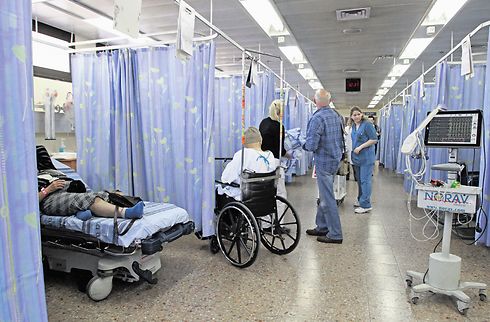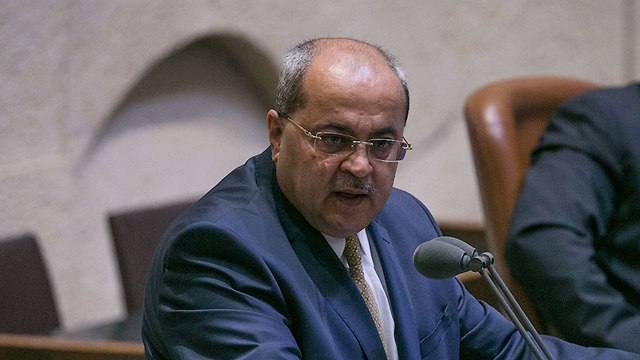
Israel's Arab citizens suffer more sickness than Jews
Knesset meeting to promote health in the Arab sector receives data showing immense gaps in health conditions and how it affects state’s budget; MK Ahmad Tibi urges investment in raising health awareness among the Arab population.
Director general of Nazareth's English Hospital Dr. Bishara Bisharat, who also serves as the chairman of the Association of Health Promotion in the Arab population presented the data during a special Knesset meeting which showed gaping health gaps between Israel's Jewish and Arab citizens.
Bisharat provided statistics of non-smoking citizens exposed to cigarette smoke. In 2017, 28.9 percents of non-smoking Jewish men and 26.1 percents of non-smoking Jewish women were frequently exposed to cigarette smoke.
A huge leap in percentages was evident when statistics among the Arab population was presented: 52.2 percents of non-smoking Arab men and 51.5 percents of non-smoking Arab women were regularly exposed to cigarette smoke, with the main place of exposure being their family homes.
Furthermore, according to the statistics, obesity rates in the Arab sector are 1.4 times higher than in the Jewish sector and prevalence of diabetes in the Arab sector is 1.6 times higher in comparison to the Jewish population.
In 2017, 11 percent of the Jewish diabetes patients were defined as having poor diabetes balance, whereas 19 percent of Arab diabetes patients with poor balance were noted.
The statistics also include nutrition data, which shows that while merely 15 percent of Israel's Arabs regularly consume whole-wheat bread, 55 percent of the Jewish population incorporate whole-wheat bread into their diets more regularly.
Dr. Bisharat also presented the immense financial ramifications of the Arab sector's health flaws for the state's budget.
Arab citizens are hospitalized 1.4 times more than Jewish citizens and have 1.15 times more doctor's appointments provided by health services.
MK Ahmad Tibi (Joint List), who serves as the chairman of the Arab Sector Employment and Social Equality Joint Committee said during the Knesset meeting that, "There is a four-year gap in life expectancy between the Jewish and Arab population.
"A courageous health plan to narrow the gaps and to promote health among the Arab population is required. Efforts should be invested in raising healthy life style awareness in the Arab society," Tibi concluded.












